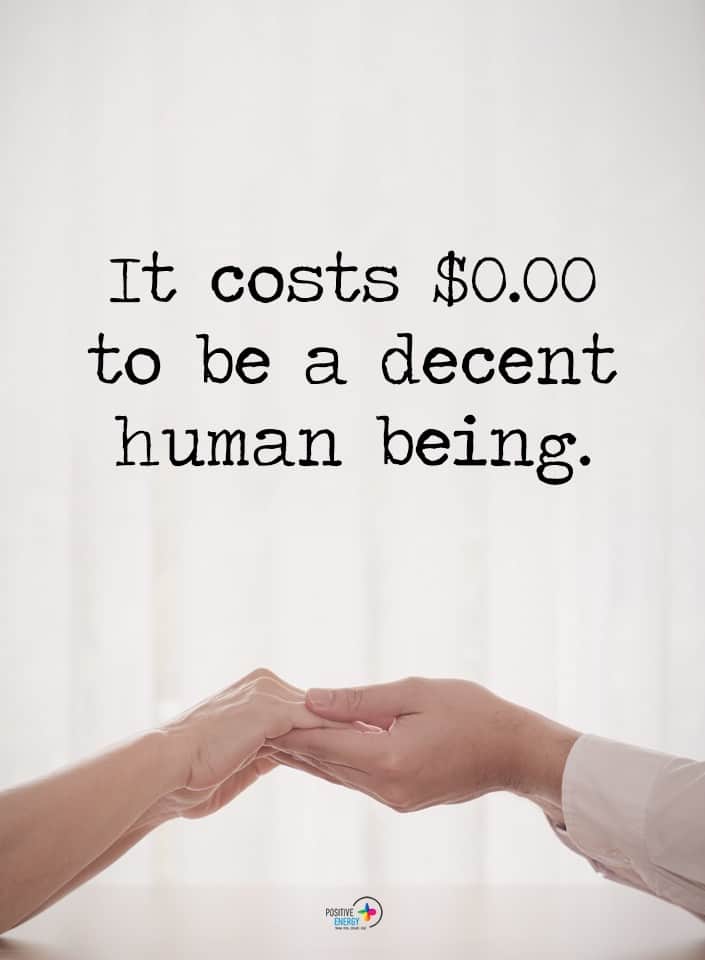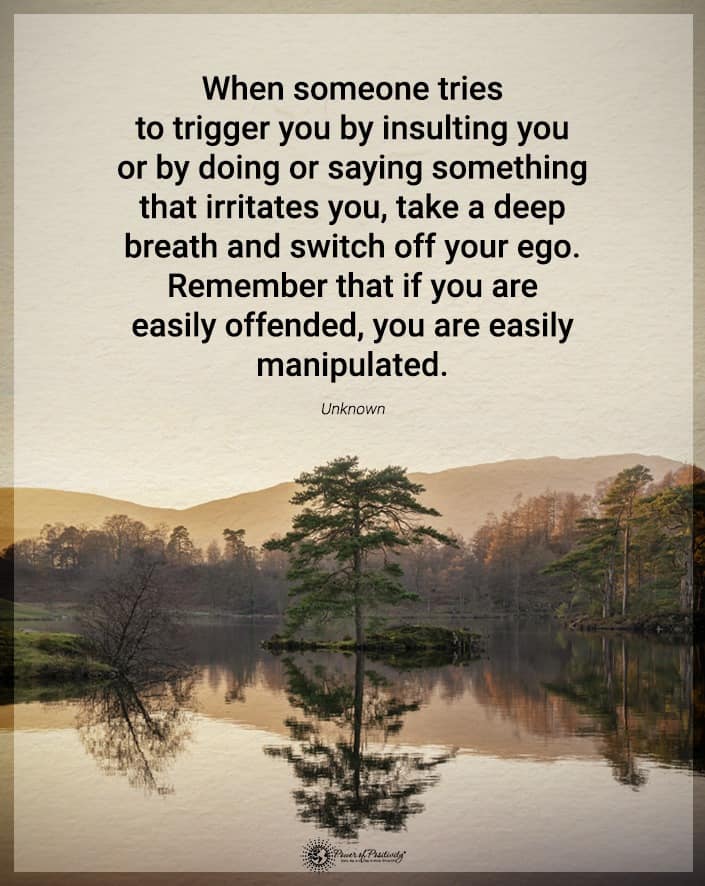Do you tend to judge other people by their character and actions? While it’s human nature, when you’re overly critical of others, it can backfire on you. Remember that whenever you point the finger at someone, there is always three more pointing right back at you.
You’re bringing a great deal of negativity into your life when you take on the role of a judge. Additionally, karma will ensure that the same judgment you meter out to others has a way of coming back on you. So, be careful of the words that come out of your mouth and the pessimistic thoughts in your mind, as they can be pretty damaging.
Fifteen Ways Judging Other People Can Affect Your Mental Health
If you tend to find fault with anything and everyone around you, you should know that it can mentally affect you. Living in such a negative state is not good for you, and it can make others want to steer clear of your presence. Here are 15 ways that fault-finding and a judgmental attitude can affect your mental health.
 1. You Can Become Cynical About Others
1. You Can Become Cynical About Others
When you’re constantly judging other people, you classify them as “good” or “bad.” It becomes difficult for you to realize that sometimes good people do bad things. You stop looking for the good in everyone and assume they are going to fail in your eyes.
Judging other people harshly keeps you from establishing or maintaining healthy friendships. Such an attitude may develop into paranoia, and you’ll think everyone is out to get you. When you can only see others with an unjust and cynical eye, you become blind to the beauty of human compassion.
2. Judging Others Can Rob You of Joy
The next time you are overly critical of another person, notice how you feel. Even if the criticism is justified, a judgmental attitude doesn’t make you feel good about the world or yourself. The negativity often drains you, and you feel smug, angry, and gloomy.
An article published by the University of Minnesota warns that not only can this negativity affect you mentally, but it may lead to physical conditions. It can even deplete the chemicals in your brain that are responsible for happiness and well-being.
3. It Inhibits Your Spiritual Growth
If you’re striving to become more spiritual, being judgmental of others isn’t helpful. When you criticize and say unkind things about other people, it makes you smaller and diminishes your spiritual growth. As you realize your shortcomings, you will learn to be more compassionate, patient, forgiving, and accepting.
4. It’s Often a Reflection of Your Self-Judgment
You’ve probably heard and quoted from sacred texts to “judge not, because you’ll be judged.” People often judge others harshly because they secretly despise the same faults in themselves. Everybody has a narrator in their brain that’s perpetually reviewing the history and casting judgment.
If you are judging yourself unfairly, your self-talk may be harmful and cause you to feel less positive about yourself. In defense, you focus on other people’s faults to deflect your feelings of inadequacy or guilt.
5. Judging Others Can Isolate You
What qualities do you find attractive in a friend? Most people enjoy others who are genuine, honest, positive, and have a good sense of humor. If you are too busy judging other people by your impossible standards, you will soon lose those qualities that make people attracted to you.
Perhaps nothing can dampen the happy vibes in a room than a grumpy party pooper. Have you gradually earned that moniker? Instead of chatting, laughing, and having fun with the gang, you’re too bothered with finding fault with everything and everybody around you.
Who would want to hang out with a grumpy old Grinch? Don’t be surprised if party invitations start to dwindle with an attitude like this.
6. You Can Lose Abundance in Life
If you plant marigold seeds in your garden, you expect that marigolds will bloom and not daisies. According to the law of attraction, you attract whatever you send out into the Universe. When you send negative and judgmental statements, you’ll get judgment and negativity in return.
Do you have abundance in your life? It goes beyond having material things. When you want to be wealthy in the things that money can’t buy, you may begin by examining your attitude.
7. You Can Become a Bad Example to Your Children
As a parent, you’ve probably taught your children to treat others the same way they would like to be treated. Have you discussed the evils of prejudice and how destructive such attitudes are? It may be difficult for your children to follow your advice if you aren’t practicing what you preach.
According to an article published by the University of Pennsylvania, negative behaviors like prejudice and discrimination are learned. You may declare that you aren’t prejudiced, but that word extends beyond race and culture. When you make blanket judgments without knowing people or their character, it is pre-judging or prejudice.
If you don’t want your kids to hate people who are different, then be a good example. The next time you are tempted to start judging other people, remember that little ears are listening.
 8. It May Raise Your Stress Levels
8. It May Raise Your Stress Levels
It’s impossible to have a stress-free life. You need some stress to learn, grow, and survive. However, too much pressure can put your survival mode into overdrive which can affect your overall health.
Stress hormones like adrenaline and cortisol are there to boost your strength in case of a life-threatening issue. An article published by the National Institute of Mental Health states that chronic stress can lead to mental illness and other severe health conditions.
Judging other people drains you of energy and can make you stressed. Since you may feel like you hold a higher standard than most, you exhaust yourself to prove others as inferior. Your unfair judgment may eventually cost your health and mental well-being.
9. Judging Others May Hinder Achieving Your Goals
No doubt, you have goals for how you want your future to be. You’ve worked hard, received your education, and honed skills in your field. Perhaps you envision a leisurely retirement that includes travel and other exciting dreams.
Did you know that a chronic critical attitude can stand in the way of achieving your goals? It’s almost impossible to be optimistic and attract good things if you are always down on everyone. Whether you realize it or not, you need other people in your life, and you will drive them away by being judgmental.
10. It Limits Your View of the World
You needn’t maintain a Pollyanna view of the world to be a positive person. If you are a realist, you understand that there’s good and evil in everything and everyone. The difference between an optimist and a pessimist is which side of the spectrum they favor.
There’s nothing positive about a judgmental attitude, and it can extend to your whole worldview. When you are constantly finding fault with others and picking them to pieces, you may start to assume that life is a big disappointment. You have your head so deep in the mud that you can’t see the glorious rays of the sun.
11. It Can Create More Bad Habits
Have you ever tried to eat just one potato chip and then close the bag? Only an extremely disciplined person could do that. Usually, having one chip leads to another, and soon the whole bag has disappeared.
If chronic fault-finding is one of your bad habits, it can easily lead to others’ unsavory tendencies. Judging other people can string along with negativity, backbiting, and holding grudges. These changes in your attitude can be so gradual that you may not realize them.
12. Judging Can Inhibit Empathy for Others
There is a big difference between sympathy and empathy. When you express sympathy for someone, you can feel sorry for their situation and then go about your business. However, empathy goes deeper, and you “feel” for the person who’s hurting. You put yourself in their shoes and validate their emotions and feelings.
How can you be empathetic when you are constantly judging other people? Instead of identifying with their feelings, you are judging them and making them feel worse. When you start to lose your ability to empathize, you lose touch with others and yourself.
13. It May Cause Depression and Anxiety
Chronic judgment may represent your dissatisfaction with your life and everyone around you. When people and events don’t measure up to your impossible standards, the negative attitudes may lead to depression and anxiety.
When you are experiencing anxious moments and bouts of depression, it’s easy to blame it on others. However, this turns into a vicious cycle that only creates harsher criticisms. One way to emerge from this whirlpool of misery is to learn to accept others as they are.
14. You Become Less Flexible
Trees have a natural ability to bend with the wind, so they aren’t broken and destroyed. Likewise, your well-being depends on how flexible you are with change. A judgmental attitude refuses to compromise and will be rigidly stubborn when confronted with anything different.
If this is your attitude, you will gradually “snap” because your criticism won’t allow you to be flexible. You may get into a rut, and the boredom can cause you to feel hopeless and defeated. A person who can be flexible and accepting of others and changing situations will be stronger in the long run.
15. Others Start to Judge You
Remember the second part of the warning about not judging others? If you continue to judge, then you will reap the judgments of others. People will soon tire of your fault-finding and will label you as hard-hearted and unfavorable. You’ll be judged by the same harsh standards you demand of others.
 Final Thought on Why You Should Stop Judging Other People
Final Thought on Why You Should Stop Judging Other People
Do you want to revive the joy in your life and have a more positive outlook? Maybe it’s time to put down the gavel and start to accept others as they are. When you are empathetic and show mercy to those around you, it will work its way back to you.
The post 15 Ways Judging Other People Harms Your Own Mental Health appeared first on Power of Positivity: Positive Thinking & Attitude.






